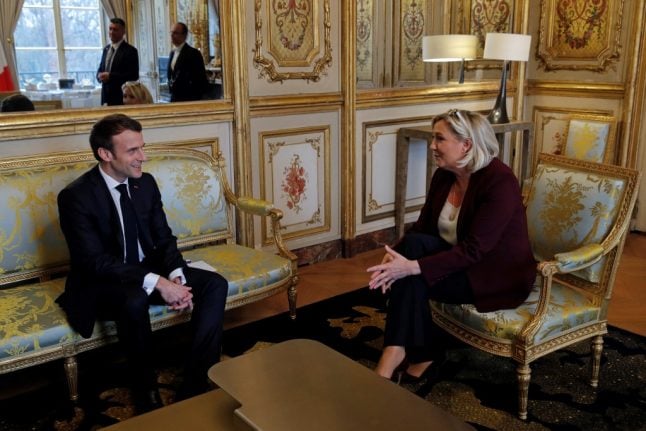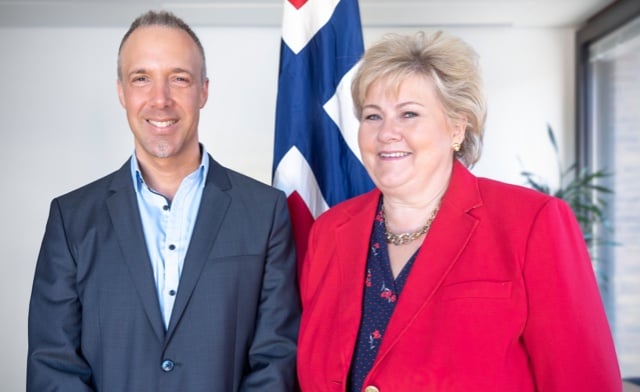The European elections are fast approaching and no doubt French President Emmanuel Macron is keeping an eager on the polls as the threat of a win for Marine Le Pen's far right Rassemblement National (National Rally) seems increasingly plausible.
On Sunday, political tensions soared in France just one week ahead of the tightly-contested elections, with Macron's party expressing unease over the presence of Donald Trump's controversial ex-strategist Steve Bannon.
Bannon had told the newspaper Le Parisien on Saturday he had chosen to come to France as its election was “by far” the most important of all the European parliament polls in EU member states.
READ ALSO:
- What you need to know about voting in the crucial European elections
- Why young French people don't care about the European elections
 Photo: stevanovicigor/Depositphotos
Photo: stevanovicigor/Depositphotos
The head of the LREM campaign, Stephane Sejourne, on Twitter accused Bannon of coming to Paris and staying at a luxury hotel with the aim of helping Le Pen's party win.
But why is Macron and his party so concerned about losing the upcoming European elections?
Macron's vision for Europe
Political experts argue that a loss for Macron's party and a victory for the far right would show that his people do not support their leader's vision for Europe. And the French president has made no secret of the fact that he would like to create a deeper, stronger EU.
Should Macron's La Republique En Marche (LREM) party fall behind the RN in the polls, it would be a major blow for the president whose supporters see him as Europe's centrist saviour against the surge of the far right across the continent.
Steve Bannon described the poll as a referendum on Macron and his vision for Europe, predicting an “earthquake” next Sunday.
And he isn't the only one who feels that way.

“If the French do not vote for Macron's party in the European elections, it will be hard to convince anybody to follow his agenda for Europe,” said Bruno Cautrès, French political analyst from the Cevipof think tank.
A win for the far right “would show the French now have a very pessimistic attitude towards the EU,” he said, adding that despite the polls all is not lost for Macron's party.
“A win for the Rassemblement National seems more plausible as time goes on but there are many among the electorate who have not chosen who to vote for yet,” he said, adding that according to the latest figures 40-45 percent of French people are planning to vote in the election.
That's compared to 44 percent in the last European elections in 2014 and 74.5 percent in the presidential elections two years ago.
 Photo: AFP
Photo: AFP
Turnout
While the French might not be about to turn out at the polls in the droves, Cautrès said that “doesn't mean the French aren't interested in the EU.”
“The French are interested in the European Union,” he said, adding that according to a recent poll 36 percent of French people said they were “very interested” in the election campaign and 38 percent said they were “mostly interested”.
So, why this disparity between how the country feels about the EU and how many are likely to vote?
Cautrès says there are a few reasons for this, one of which is that the European elections are “very complicated”.
“Once you've elected someone it can be hard to understand exactly what their role is in the European parliament. This is still true in spite of the fact the European elections have been going on for 40 years.”
Some have said that young French voters are particularly disillusioned with the European elections, with fewer than one in four of planning to vote in them.
Several reasons for this have been suggested, including that young people in France are pessimistic about the future of Europe and that they don't see Europe as necessarily as glamorous as America and Australia, however Cautrès said that it's important to avoid looking at young French people “as all the same”.
“Young people who are unemployed or living in a rural area are more likely to see the EU as failing them whereas those who are more prosperous and living in cities are far less likely to feel that way.”
Does the result really matter?
Some believe that a win for Marine Le Pen's party would mean very much at all – after all, the previous incarnation of the National Rally party – the National Front – won the European elections back in 2014.



 Please whitelist us to continue reading.
Please whitelist us to continue reading.
France 2019 = UK 1970